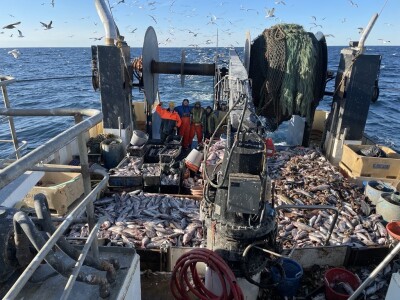Yesterday a group of environmental advocates testified before a Maine legislative policy committee in support of a bill to ban the use of synthetic microbeads. The tiny beads, no larger than a third of a millimeter in diameter, are typically found in facial scrubs, body washes and even toothpaste. They bypass wastewater treatment plants that are not designed to filter them and wind up in our waterways, where they are absorbed or eaten by all manner of marine creatures.
The Great Pacific garbage patch is created in the gyre of the North Pacific Subtropical Convergence Zone. NOAA renderingMaine is one of 20 states that will introduce some prohibition on microbeads this year. One of the biggest concerns is the unwitting human ingestion of microplastics that are present in the shellfish we eat.
But microbeads are only a small, ahem, part of the problem. Plastic particles, the majority of which are called nurdles, which are about 5 millimeters in diameter, are the largest source of plastic water pollution contributing to massive swaths of floating debris in the oceans, including the Great Pacific garbage patch.
The ultimate quandary is how to rid our waters of these polymers, which do not degrade like organic substances. As plastic disintegrates in the water, it merely breaks down into smaller and smaller pieces that concentrate in the upper water column. The simplest solution is to reduce our use of plastics and dispose of them properly.
If you’re interested in avoiding products that contain microbeads before legislation can weed them out, visit beatthemicrobead.org to download an app that will keep you updated as you shop.







